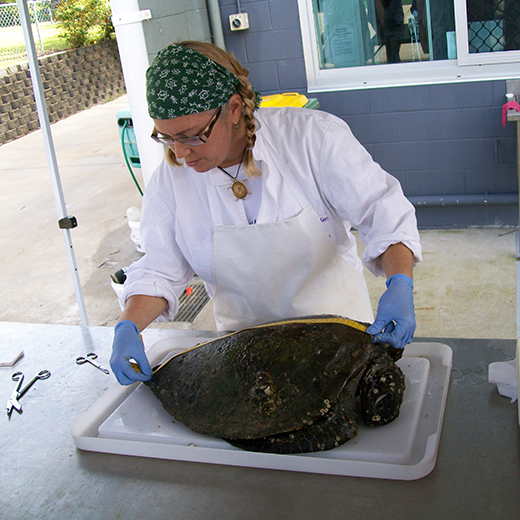University of the Sunshine Coast researchers will track the impact of Queensland’s upcoming ban on plastic bags by monitoring the marine debris found inside dead sea life in waters off the Fraser Coast.
USC Lecturers in Animal Ecology Dr Kathy Townsend and Dr Dominique Potvin will lead the study to determine the impact of entanglement and ingestion of debris on the region’s endangered marine creatures.
The research project is a first for the Great Sandy Marine Park, an important nesting and feeding ground that extends from north of Bundaberg to Double Island Point in the south.
Dr Townsend, an expert on marine debris in sea turtles and other marine species, said the study would also allow researchers to measure the effectiveness of the state-wide ban on plastic bags which comes into effect on 1 July.
“Plastic bags are notoriously dangerous for turtles and sea birds who mistake them for food and choke or get tangled among them until they cannot swim or fly,” Dr Townsend said.
Starting next month, the researchers will conduct autopsies on dead stranded sea turtles from along Fraser Coast beaches.
They will also identify marine debris hot spots though surveys along the mouths of the major river catchments that flow into the Great Sandy Marine Park including the Mary, Burrum and Burnett Rivers.
“We aim to determine which of the major river systems are making the biggest debris inputs into the system,” Dr Townsend said.
“Using water circulation patterns, we will use computer modelling to estimate in-water marine debris concentrations and overlay the data with sea turtle and seabird distribution data within the region.”
Fraser Coast Regional Council and Queensland Parks and Wildlife Service will partner with USC in the project by collecting dead birds and turtles from the region’s beaches and waterways to be autopsied by Dr Townsend and Dr Potvin.
“Previously, these creatures would have just been disposed of but now they will be dissected to determine the cause of death and to see what plastics and other debris they may have ingested,” Dr Townsend said.
USC Fraser Coast Animal Ecology student Catherine Miller will assist with the research as part of her Honours thesis while undergraduate students will help conduct marine debris surveys of the region’s waterways as part of field studies.
— Clare McKay
Media enquiries: Please contact the Media Team media@usc.edu.au

